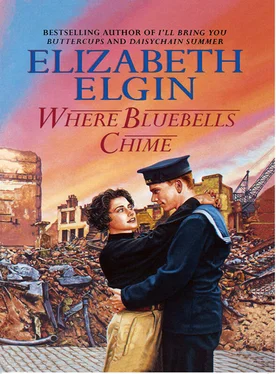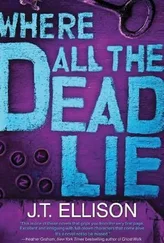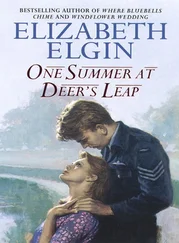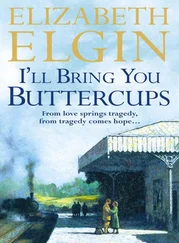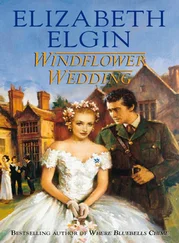‘He’ll be all right, dearest. I feel it, know it. Drew will come home to us.’
‘Yes, he will. And I’ll write to him, tomorrow – too tired tonight. Do you think you could ring for Mary, ask for my milk?’
‘I’ll get it myself,’ Julia smiled. ‘Mary is, well, busy , these days.’
Lately, Mary Strong was most likely to be found in the grooms’ quarters above the stables. After almost twenty years of courtship, Will Stubbs had at last been pinned down. A day had been set for the wedding, the banns already called once at All Souls’.
‘I tell you, Will, I’ll wait no longer,’ Mary had stormed. ‘I’m the laughing stock of Holdenby, the way I’ve let you blow hot and blow cold. Well, those Nazis are coming and when they do, I want a wedding ring on my finger – is that understood?’
Will had understood. If the Germans did invade, he might as well be married as single. It would matter little. When the Nazis came – and Will had deduced they well might – they’d all be thrown into concentration camps anyway. Best do as Mary ordered and wed her.
‘I never thought she’d get Will Stubbs down the aisle,’ Julia smiled as she closed the door behind her.
Tilda was sleeping in the chair – in Mrs Shaw’s chair – when Julia poked her head round the kitchen door and she jumped, gave a little snort, then blinked her eyes open.
‘Sorry to disturb you – I’ve come for Mother’s milk.’
‘All ready.’ Tilda was instantly awake.
On the kitchen table lay a small silver tray on which stood the pretty china saucer her ladyship was fond of and the glass from which she drank her nightly milk and honey. Beside it was an iron saucepan, a milk jug and honey jar and spoon. Tilda Tewk was nothing if not methodical, now she had taken over Mrs Shaw’s position as Rowangarth’s cook.
‘I’ll just pop a pan on the gas, Miss Julia. Be ready in a tick.’
‘Thanks, Tilda.’ Julia sat down on the chair opposite to wait. ‘I called on Mrs Shaw, today. She seems to have settled in nicely, though she’s sad, she said, that she had to wait for Percy Catchpole to die before she could get an almshouse to retire into.’
‘There’s been a lot of changes, Miss Julia, amongst the old folk. Think it was the war coming that has to answer for it. Seemed as if they just couldn’t face another. But I couldn’t help noticing, ma’am, that there was a letter from Sir Andrew by the late post. How is he then, and when will us see him?’
‘Drew is fine, and looking forward to his first leave,’ Julia smiled. ‘I’ll tell him you asked.’
‘You do that. And tell him when he comes home as Tilda’ll see he’s well looked after. He’ll not be eating overwell, now that he’s a sailor.’ Food rationing or not, young Sir Andrew would have nothing but the best when he came on leave and there’d be his favourite iced buns and cherry scones, just like Mrs Shaw used to make. Tilda Tewk had glacé cherries secreted away for just such an occasion – aye, and more sugar than anyone in this house knew about! The last war had taught her a lot about squirrelling away and this war, when it came, had not caught her napping! ‘Now here’s her ladyship’s glass, though you’d only to ring and I’d have answered.’ There was little to do now at Rowangarth, even though Mary was so taken up with her wedding and Miss Clitherow, the housekeeper, away to Scotland to the funeral of a relative. ‘And when do you expect the Reverend, Miss Julia?’
‘Late, I shouldn’t wonder. A parishioner, you know – the Sacrament.’
‘Ah,’ Tilda nodded. Flixby Farm, it would be. The old man had been badly for months.
‘Go to bed. I’ll wait up,’ Julia offered.
‘Nay, miss, there’s no hurry. Mary’s still out so it’ll be no bother and any road, I promised Miss Clitherow before she went that I’d check the blackout.’
‘Have you heard from her, Tilda?’
‘Only once, to let us know she’d got there – eventually. A terrible journey, by all accounts. Two hours late arriving, and no toilet on the train.’
‘That’s the war for you,’ Julia sighed, wondering if anything would ever be the same again and refusing, stubbornly, even so much as to think about the threat of invasion.
Tom Dwerryhouse sat in the rocker in the darkening kitchen, reluctant to draw the thick blackout curtains, needing to suck on his pipe, sort things out in his mind.
Nothing short of a fiasco, that meeting had been, with no one knowing rightly what to do. The formation of the Local Defence Volunteers it was supposed to be; civilians who were willing to stand and fight if the Germans came. And come they would, Tom frowned, since there seemed nowhere else for them to go except Russia, and they’d signed a pact with Russia not to fight each other.
Strange, when you thought about it – Fascists and Communists, ganging up together. The two didn’t mix, any fool knew that. But happen they’d only agreed the non-aggression pact because each was scared of the other. And long may it remain so. A bit of healthy mistrust was just what Hitler could do with – the need to look over his shoulder at the Russians – wonder if they would stab him in the back.
But Stalin was nowt to do with us. What was more important was getting some kind of order into the Volunteers. There had been all manner of opinions put forward and no one agreeing until in the end the Reverend had suggested he contact the Army in York and ask them to send someone over to talk to the men.
Then the Reverend had been called away to Flixby Farm and that had more or less been that. A right rabble they were – no uniforms, no rifles. Those men who owned shotguns had brought them, but the cowman from Home Farm had arrived with a hay fork over his shoulder, which was all he could muster, and hay forks – shotguns, even – weren’t going to be a lot of use against tanks and trained soldiers. Hitler would pee himself laughing if he knew, and be over on the next tide!
Tom gazed into his tobacco jar, wondering if he could indulge himself with a fill. He had shared his last ounce with Reuben and only the Lord knew when he could get more.
And soon beer would be in short supply, the landlord at the Coach and Horses in Creesby had been heard to prophesy gloomily. On account of sugar being rationed, that was. No option, really, when the breweries had had their sugar cut, an’ all.
But beer was the least of Tom Dwerryhouse’s worries. What really bothered him was all the talk of invasion. People spoke about it in a kind of subdued panic, as if it couldn’t really happen. Not to the British.
But things were bad: the French overrun and British soldiers snatched off Dunkirk beaches reeling with the shock of it. It was all on account of that Maginot Line, Tom considered gravely. Smug, the French had been. No one would ever breach their defences; not this war.
But they hadn’t reckoned with Hitler’s cunning in invading the Low Countries. Never a shot fired in anger, because his armies had just marched round the end of the invincible Maginot Line and had been in Paris before the French could say Jack Robinson. Only Hitler could have thought of pulling a fast one like that and getting away with it. A genius was he, or mad as they come?
Tom reached again for his tobacco. He needed a fill. Things were writhing inside him that only a pipe could soothe. It wasn’t just the invasion and taking care of Alice and Daisy and Polly, if it happened; it was that Local Defence lot in the village. He had left Keeper’s Cottage expecting to join it and be treated with the respect due to an ex-soldier, but all they’d done was witter amongst themselves, tie on their Local Defence Volunteer armbands and agree to meet another night. And there was nothing like an armband for scaring the wits out of a German Panzer Division!
Читать дальше
